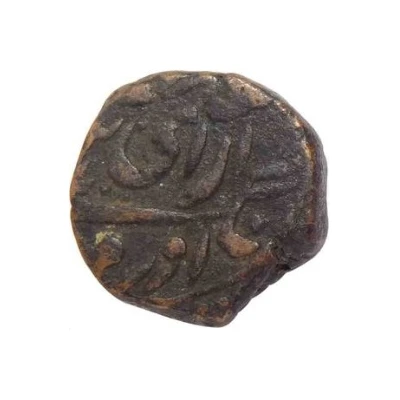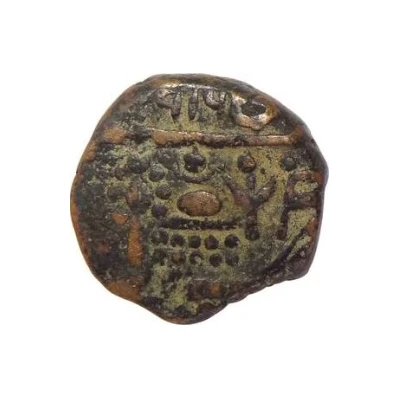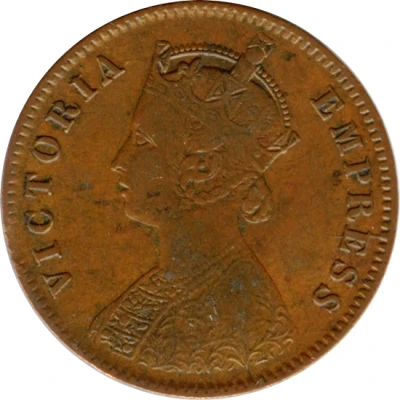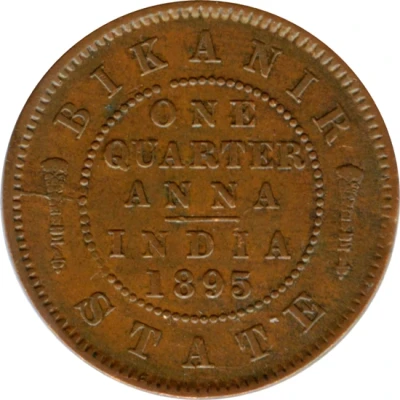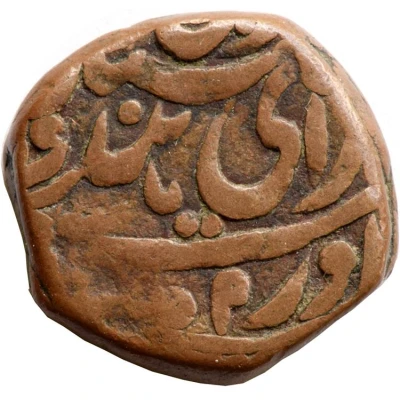
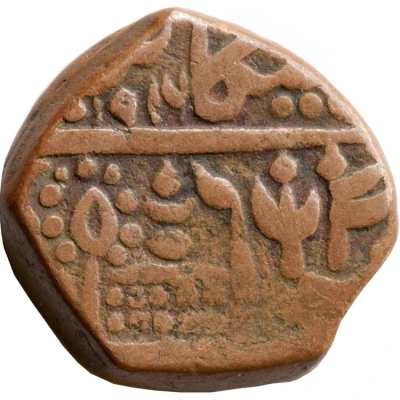

© Joseph Kunnappally
1 Paisa - Dungar Singh In the name of Victoria
1916 (1872-1887) years| Copper | 7.79 g | 19 mm |
| Issuer | Princely state of Bikanir (Indian princely states) |
|---|---|
| Maharaja | Dungar Singh (1872-1887) |
| Type | Standard circulation coin |
| Year | 1916 (1872-1887) |
| Calendar | Vikram Samvat |
| Value | 1 Paisa (1⁄64) |
| Currency | Rupee |
| Composition | Copper |
| Weight | 7.79 g |
| Diameter | 19 mm |
| Shape | Round |
| Demonetized | Yes |
| Updated | 2024-10-05 |
| Numista | N#92495 |
|---|---|
| Rarity index | 90% |
Reverse
Legend in Persian: 'Zarb Sri Bikaner'
VS date
Symbols of rulers of the House of Rathods
Lettering: ١٩١٦
Translation: Struck in Bikaner, (VS) 1916
Edge
Plain
Comment
- Sri Raj Rajeshwar Maharajadhiraja Narendra Maharaja Shiromani Sri Dungar Singh Bahadur (22 August 1854 – 19 August 1887) was a Maharaja of the princely state of Bikaner from 1872 to 1887. The eldest of three sons of Maharaj Sri Lal Singh (16 December 1831 – 17 September 1887) a relative of a distant branch of the Rathore clan. Dungar Singh died in 1887, only a few days shy of his 33rd birthday, his father following him in death a month later. He was succeeded by his youngest brother, Ganga Singh, whom he had adopted for himself as his son (wikipedia).- Weight varies: 7.50-7.79 grams.
- Rulers of Bikanir placed their own unique symbol on coins minted during their rule. Subsequent rulers retained symbols of previous rulers on the coins and also added their own. Thus coins of later rulers had multiple symbols on the reverse (see image below).
Interesting fact
One interesting fact about this coin is that it was issued during a time when the Princely state of Bikanir was under British colonial rule, and yet it features the name of Victoria, the British monarch, alongside the name of the local ruler, Dungar Singh. This highlights the complex political dynamics of the time, where local rulers were still maintaining some level of autonomy, but were also subject to British authority.
